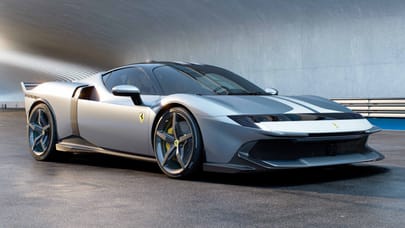
Opinion: how will carmakers respond to Euro 7 emissions regulations?
Carmakers have always cried wolf when it comes to new regs, says Paul. But this time it’s different...
Back in the late Sixties hot weather would bring a vile yellowish smog to hang over Los Angeles, causing or worsening all sorts of nasty breathing illnesses in huge numbers of the people. It was mostly, though by no means wholly, caused by dirty car exhausts. So Congress passed the Clean Air Act which meant that by the mid-Seventies cars would need catalytic converters. GM, Ford and Chrysler went mad, furiously lobbying against this imposition, saying the cars’ performance and economy would be ruined and the downtrodden customers would have to pay higher prices. That’s always how car companies do their lobbying: spin it that the poorer buyers are the victim, because eliciting sympathy for multibillion corporations is a much harder sell.
The first couple of years of catalysed cars were indeed a bit crap, but soon the engineers found ways of overcoming the difficulties and the world went on its merry way. And so it has proved with almost all the consumer protection, safety and environmental improvements that governments have brought on the car business worldwide over history.
I’m old but not that old and wasn’t a journalist during that emissions battle in the Seventies. But I was around to cover the banning of lead in petrol in Europe, the first three-way cats here, the development of NCAP, the ramping up of CO2 emissions pressure, pedestrian protection devices, various bits of active safety tech, particulate filters and many more.
Each time the car industry follows the same script. First it lobbies undercover against the authorities. Then it gets cracking on a PR offensive, asking its engineers to say this improvement is impossible. Then they say it is possible but only at great cost to buyers and it’ll ruin the fun of cars. Or with safety improvements such as softer bumpers and bonnets, they wheel out the designers who grumble it’ll make the cars so ugly no one will buy them.
At this point I always say to them: “C’mon, you’re cleverer than that. You’ll find a solution. You always do.” And again they do.
But we might be arriving at an exception: the upcoming Euro 7 rules. Euro 7 sounds noble: it would reduce tailpipe NOx and particulate emissions to effectively zero until the car is 10 years old. I live in a city, I have a child: I want this outcome. But it will take a lot of R&D. That puts disproportionate pressure on buyers of cheap cars and on maintenance for those who’ll get them secondhand. Or, as before, carmakers will find loopholes or cheat.
The lobbying goes on and it’s likely we’re talking about 2025 for introduction. By that time, new combustion cars will be well on the way to their phaseout. That means the Euro 7 ones will only ever be a tiny proportion of the fleet. So even if the rules have the desired effect it’ll make little difference to overall air quality. Even if engineers figure out a way to do Euro 7 at reasonable cost, it’ll be a distraction for them. I wish they could instead spend their time bringing us better cheaper batteries, fuel cells or whatever, to take us into a distant future that’s clean and fun.
Top Gear
Newsletter
Thank you for subscribing to our newsletter. Look out for your regular round-up of news, reviews and offers in your inbox.
Get all the latest news, reviews and exclusives, direct to your inbox.
Trending this week
- Car Review
BMW iX3








